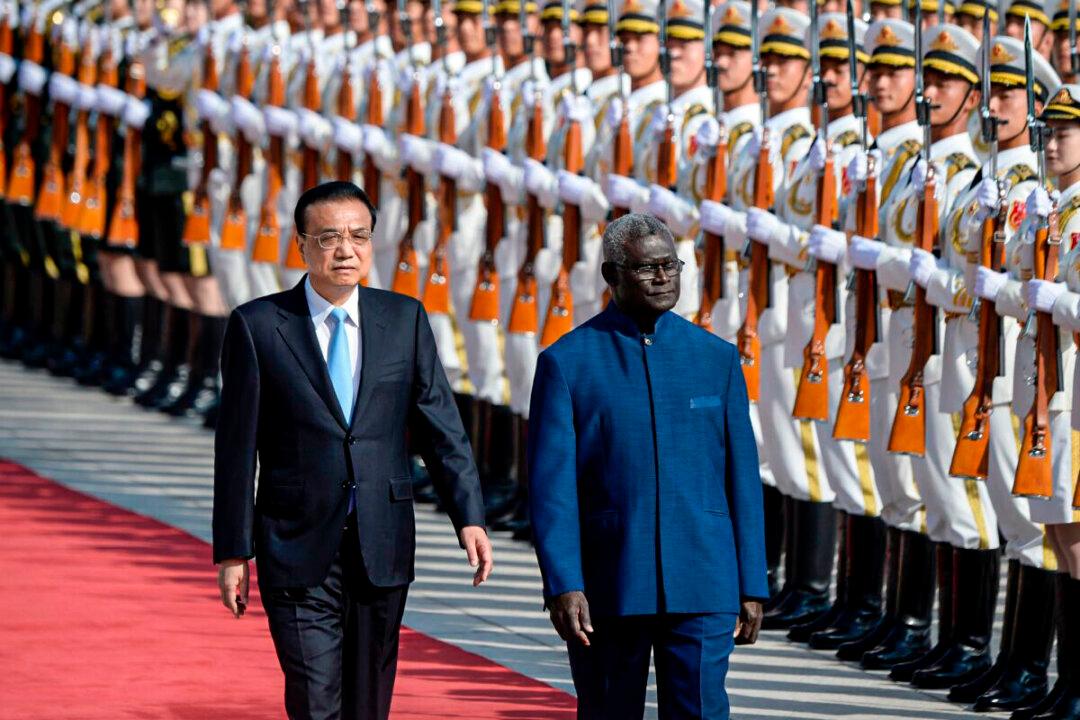The leader of the Federated States of Micronesia on Wednesday appealed to the Solomon Islands government to scrap a China-Solomons security pact, citing “grave security concerns” and the risk of “increasing geopolitical tensions.”
President David Panuelo wrote to Solomon Islands Prime Minister Manasseh Sogavare saying that Micronesia “cannot endorse or agree” with the “unprecedented agreement” that will allow Beijing to station armed police and troops on the island.





